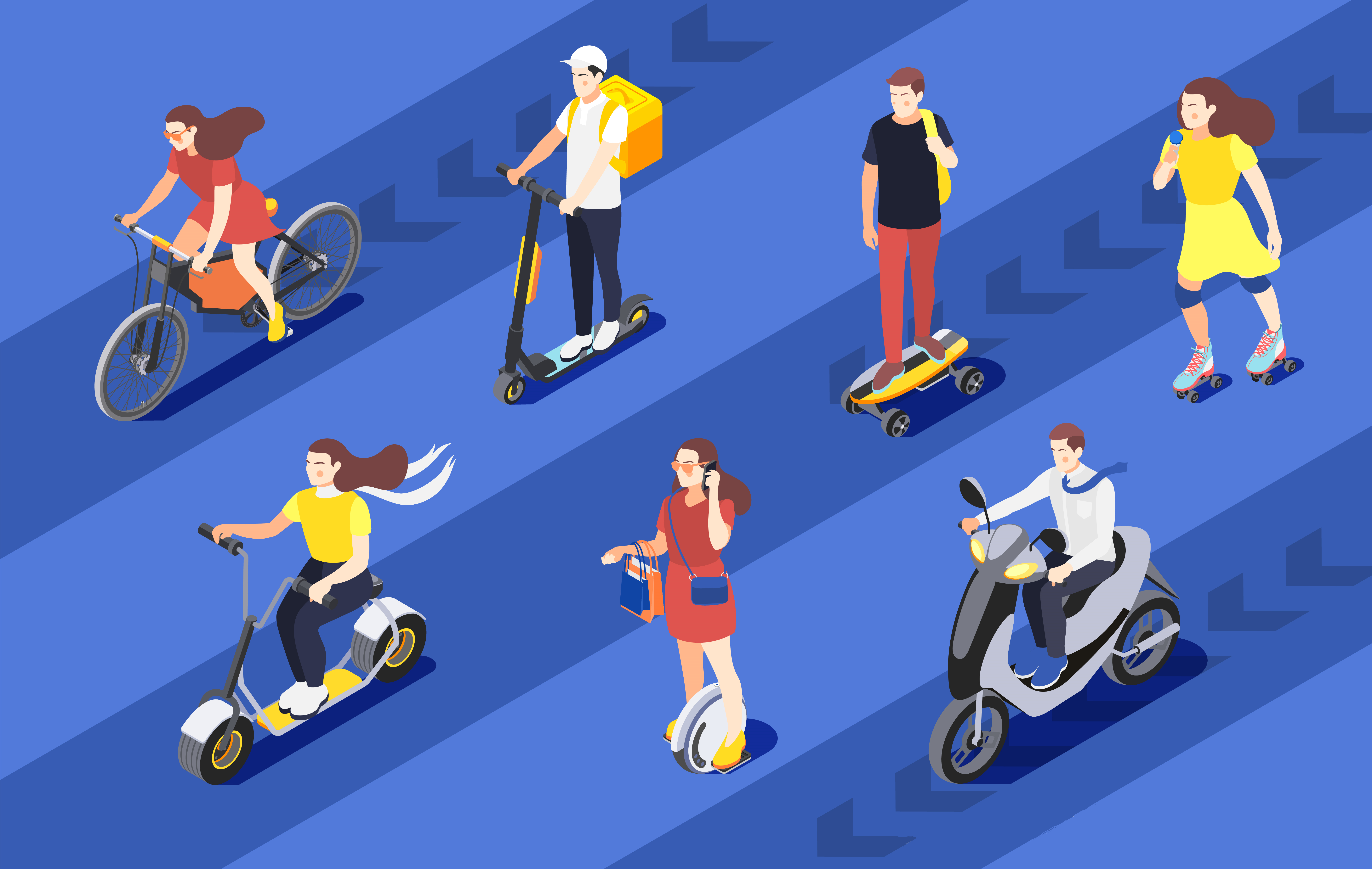
I confess that I do not know how to go. I would even say that I don't dare to take them. But I also have to tell you that the problem I have with scooters is not their fault, but mine. Maybe because of my age I don't see myself on top. I just don't trust myself when it comes to handling it. And the same thing happens to me with motorcycles, which I have never driven. On the other hand, I do dare with bicycles, and I like to go. But let's go to court. The scooter, in itself, is not the problem that so many citizens believe and state that it is. The problem is who drives it, who does not know how to use it or who thinks they can use it to make him do things for which it is not designed. For this reason, and because I believe that the scooter -or the urban bicycle- is here to stay, I am in favor of regulating its use, and educating it. And, in fact, I am not making any futuristic proposals. Technology and some companies that promote shared use have the resources to avoid what is at the origin of their bad reputation: the incivism of their users. So that the scooters that have an owner -which are private, to understand us- are the ones that, driven by according to whom, become a collective nightmare. Imagine, however, a shared-use scooter that can only be left parked where the authority decides, because it is equipped with a system that recognizes the parking lot and does not stop billing the user if the scooter is not found in its place. Or imagine a scooter that has a precise location that it can disconnect from its electric battery if it is traveling on an unauthorized road. Or you have a speed limit that cannot be altered. And of sensors that, as in the case of cars, can perceive the risk of running into a specific person or place.
The scooters will not disappear, and the best option is to take advantage of technology to make a regulation that goes beyond the helmet and insurance
All this I say, and much more, is possible. In fact, there are companies that, according to prestigious universities, are incorporating pollution sensors that emit open data and that help urban air quality researchers to know at what specific points and at what hours the pollution is more or less high.
The available technology can help the governance of cities, and make them friendlier and less polluted. And if we all agree that scooters have come to our cities with the will to stay, we have to debate whether we prefer them individuals, because the local police will chase them randomly and individually if they break the municipal regulation, or if we promote a service share that has technology to enforce generally good use.
I believe that the second option is not only the good one, but also irreversible. And that cities must equip themselves with more infrastructure for this type of mobility, which will grow and must be compatible with traditional public transport. Furthermore, I believe that a good way to explore and work would be for traditional public transport to incorporate into its services a “last mile” offer of personal mobility vehicles complementary to the traditional one. Nobody like them knows the terrain, the frequencies, the uses of the street … And nobody like them can easily incorporate this type of service to share that it is here to stay, and against which there are no “barriers to the field” to put.
It would be good if more municipalities took the step forward that technology can provide and that citizens demand in favor of a more civic and sustainable mobility. But the traditional fear of those who do not know the solutions and do not seem willing to face the problems is detected in some of them. Scooters will not disappear, and the best option is to take advantage of technology to make a regulation that goes beyond the helmet and insurance to encourage shared and respectful use.
Ferran Falcó, member of association Restarting Badalona



